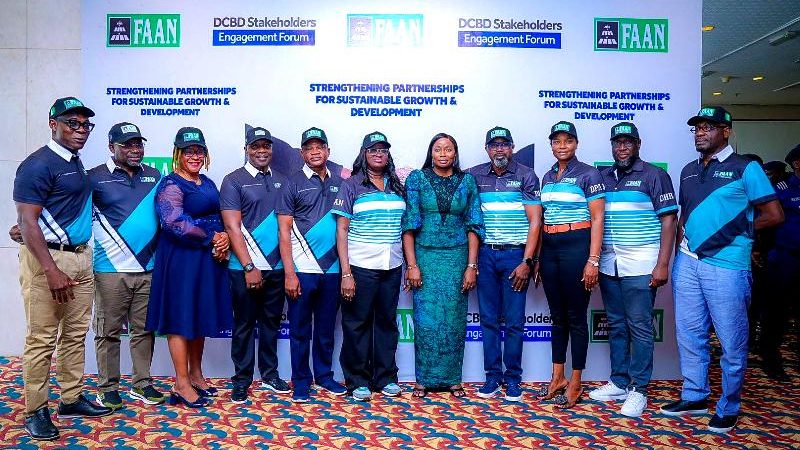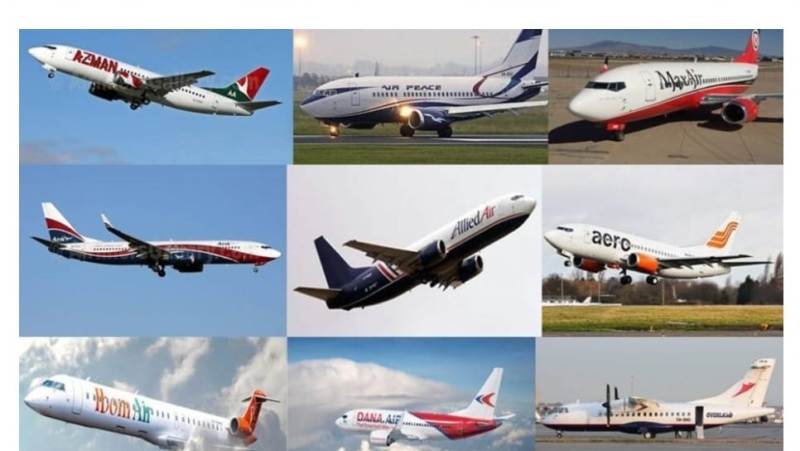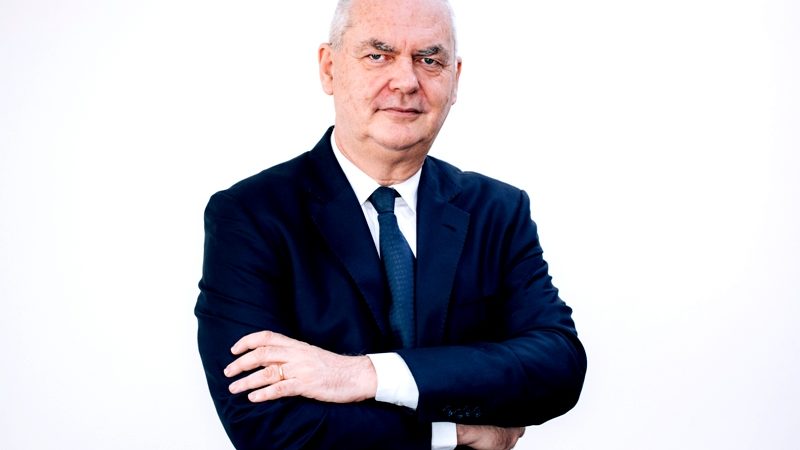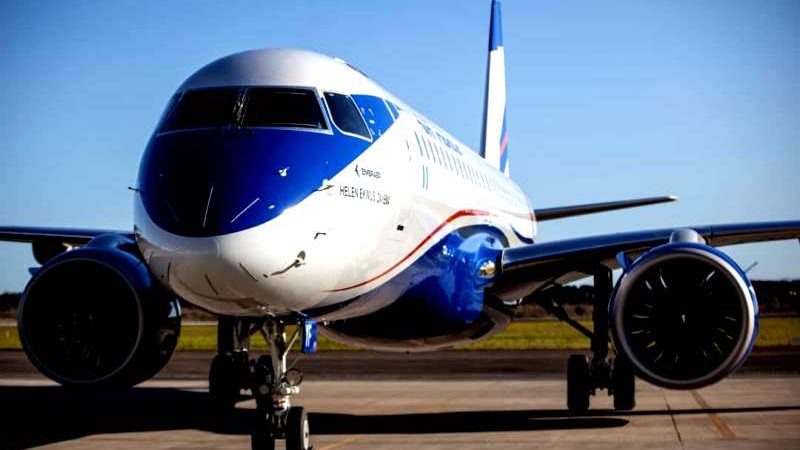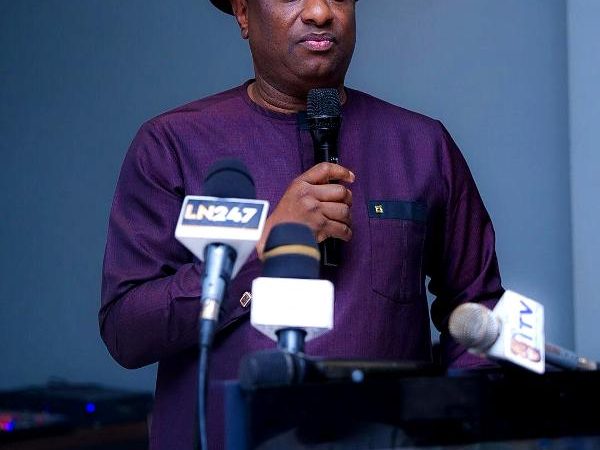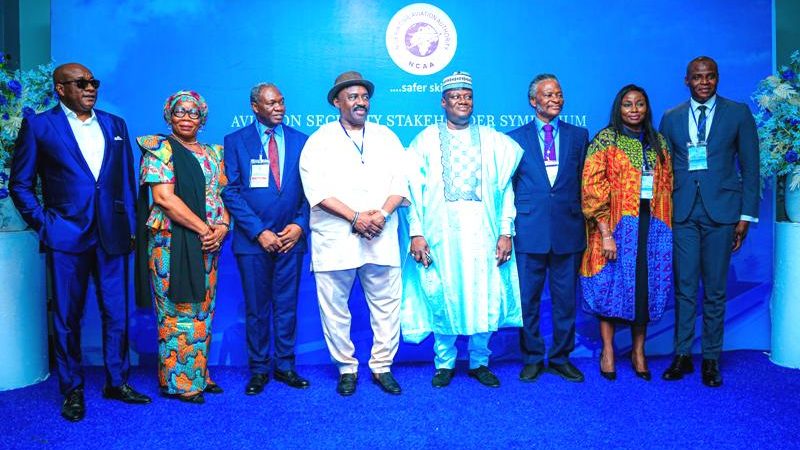An Experience Of A Nigerian Pilot That Became A Captain At 24
“My travails did not terminate with my graduation from school. There were other pills to swallow after scaling the school hurdles.
I joined Express Airways, Kaduna, which later became Skypower Express Airways. The airline owned by Mohammed Joji, and because of our constant frequencies to Minna, the Niger State government at that time was disposed to patronizing our airline. For the privilege accorded us, we had a rule that we have to wait extra 10 minutes for government officials anytime they are to travel with us.
“This particular day, I landed my airplane, only for the Station Manager, Saidu Abdulahi, hardworking, energetic and smart man, to approach me that he had a problem. He had full seat already and was having seven on standby. What could we do? On board that day were dignitaries like Generals Wushishi and Ibrahim Babangida’s close associate, Alhaji Bawa Bwari (late). I saw their names on the manifest, but they were yet to board. And there was this Vice Chancellor, Prof Ndagi, who was on the standby list too. We used to concede two seats for government, which had already been sold out because there was no notice of movement from the Government House. So, how do we reshuffle passengers to accommodate Ndagi?
I told Abdulahi to give me the list and spotted a young chap among the passenger. I called him and struck a deal with him. He would give his seat to VC Ndagi and wait for our other flight, which would take him for free. I told him to go home and come back and that when we return from Lagos, we would fly him to Kaduna and on to his destination, free. The aircraft I would fly from Lagos would be carrying mails, but it has a seat at the front.
“He was excited. I told them to give him the meal he was to be served aboard while his airfare was refunded. He accepted and left.
It is time to go. I manifested Prof Ndagi and instructed him to board. But here is the Station Manager again. A call had been put through to him from the Government House that they would want to be booked in the flight. He conveyed the message to me and I said it was too late to make any further amends.
Before I could finish conversation with him, the blaring of siren from the Government House seized the air. The dispatch rider was first to arrive. He parked right in front of my airplane because they were also in a hurry. I told Abdulahi to meet him down because we could not be negotiating inside the plane. I said he should also tell the dispatch rider to vacate his motorbike from its position to allow me taxi to take off.
Abdulahi came back to tell me that the governor had ordered that the person that wanted to go with the plane must travel with the flight by all means.
“Solemnly, I told him that was not possible. But the man would not bulge. I sent for him to meet me in the aircraft. He was in full Army uniform with the rank of a lieutenant and he said that he was CSO to governor. I explained to him that the flight ought to have left 15 minutes earlier and that there was no way we could start rearranging for them. Yes, we had an agreement to give government 10 minutes grace, which had far elapsed. The man in uniform told me the wish of the governor must sail in as much as they came and met the aircraft on ground. I told him you met us because you screwed up our schedule. We normally wait for you until the last 10 minutes, but you did not call. I brought out the memo from my office, which read: ‘Every pilot flying this route should allow 10 minutes for Government House,’ for him to see. I told him I was sorry and that I got to leave.
“Now charged, the man in uniform told me I could not go and that their guest must leave with the plane. I now faced the passengers who were already seated, expecting our take off. I told our guest to face them and point to who I should tell to step out of the aircraft. I said: “point to one of them and order him to get out for you. He couldn’t point at any one. I succeeded in embarrassing him.
“And since he couldn’t order anybody out, I instructed Abdulahi to summon the co-pilot and told the co-pilot to sit down. I then called the soldier to join me outside the aircraft. But as he stepped out, I rushed back into the aircraft and closed the door. He dashed into his car and ordered the dispatch rider to maintain his position at the front of the aircraft.
“I started the engine of the plane. The dispatch rider remained rooted to the spot. I knew the airplane could go on reverse when it is stationary. I applied the reverse thrust and the tormenting wind surged to the front blowing the dispatch man out of stability as he struggled to maintain balance with his motorbike. I maneuvered the plane and the wing went over his head. My co-pilot said he saw them running after me. With the little space I could occupy on the runway, I managed to take off.
“On touch down in Lagos, my Managing Director, Capt. Joji and all senior management were already on ground waiting for me. I asked them what the problem was, but they bombarded me with questions on why I did what I did. Noticing my ordeal, Alhaji Bawa Bwari called me aside and said I should stand my ground and that I should let him know should things get bad. He wrote down his telephone number for me.
“My boss was bitter. I tried to explain to him. But Bwari later intervened and explained the situation to him. He said ‘this boy did not do anything wrong’ and that what I did was the best anybody could do under such circumstances. They left me alone and I took off again to Minna, this time, to pick the boy I promised to fly to Kaduna for free.
“But getting to Minna, I met a different situation. The government had ordered the arrest of all my staff on ground, except one who was in the toilet at the time they swoop on them.
“Unusually, I noticed that nobody came to welcome me as I alighted from the aircraft, except a loader who was in the toilet at the time they came to arrest the others. Officials of the Fire Service who were on duty that day narrated how some soldiers, fully armed, swooped on our office, arrested and whisked away all members of staff at sight.
“I was mad with rage. At the time I was getting the reports, there were some American journalists on-board my aircraft. I then spotted our chairman, Alhaji NdaNusa, who was wearing an unhidden disdain on his face. He chastised me for my action and said I should immediately follow him to the Government House.
“But there was no way I could leave my passengers with no words and follow my chairman to Government House. I announced my plight to the Kaduna bound passengers on board. Some of them asked for alternative arrangement to take them to their final destination, which we did. But the Americans on board insisted they were going to stay on board and see the end of the story.
“I joined my chairman and off we drove to Government House to meet a waiting group of government personnel who took turn to express shock that I could act the way I acted.
“Unperturbed, I told them I only did what was supposed to be done under the circumstance I found myself. They took turn to prevail on me to go in and apologize to the governor, but I declined. I got to know from their chastisement that the man that came with the government passenger came back to tell them that I was not going to fly the passenger because they were late and that I said the governor should go and acquire his own aircraft since the one I fly did not belong to him.
“I told them I was in the Government House to replace myself with my staff they were keeping in detention since I was the one that hurt them if at all they were even right. They said that would not happen until I go in and apologize to the governor. I said I would do nothing close to that over a false allegation. I committed no offence and there was nothing to apologize for. They went mild and implored me to go inside and greet the governor, but I still would not bulge.
“At this point, the chairman was bitter. He lashed out at me saying: ‘Okay, I am old enough to be your father. I am telling you now to go right inside that office and apologize to the governor and let’s end this case.’ And I responded: ‘Sir, my own father is old enough to be your father too, so you can’t be my father. The gap between you and I cannot be more than fifteen years, but my father would be about thirty years older than you and he told me never to apologize for an offence I did not commit.”
“Confused, the chairman ordered that I should be taken away to the airport since I would not cooperate, but I said that would only happen if they release my staff that were in their detention. When the situation was getting tensed up, I requested for a piece of paper with which I started writing my resignation letter.
“Surprised, the chairman cried out: ‘What are you doing. And I responded: ‘You’ve got to detain me the way you do to my colleagues. You are doing all these because you have power and I work for the company that you are the chairman. By the time I resign here and now, I’ll see whether you will still stop me from leaving here. I will leave your plane here, take a taxi and go back to Kaduna. If you like, you can detain me also with the innocent people, but God will fight our battle.’
“At this point, they motioned me to wait a minute. They went in with the SSG to the governor to have a brief discussion and, the next moment, I saw my staff filing out. I embraced them one after the other; some were weeping, but with joy in their eyes. They gave us a bus and together we rode back to the airport.
“When the American journalists saw me, they were happy. They congratulated me and we became friends. I looked for the young boy I told to wait for me and fulfilled my promise by taking him to Kaduna and put him free on the mail flight to Lagos, all free.”
A BRUSH WITH MY BRITISH CAPTAIN
“An incident occurred when I was still a co-pilot. The British pilots who were in our employment were treating us like dregs. They throw caution and decorum into the air as they go about the business of flying. But flying is a business you must do with near perfection, as a rule. In those days, there were some Lebanese who travelled frequently between Kano and Enugu. I heard about how the British pilots would drop their co-pilot, tip them with twenty naira and then use the co-pilot’s seat (right-side cockpit seat) for any white passengers or light skinned Lebanese passengers etc. There has never been a black passenger given such opportunity.
On this fateful day, I landed in Enugu with Captain Tony May. We boarded the passengers and as the co-pilot, I also went ahead to secure the baggage compartment. But on getting back to the cockpit, I saw a Lebanese man already positioned on my seat. I asked him why and he said the pilot told him to be there. At this time of conversation, Captain May was not around. I went out to wait for him. He eventually emerged with a mischievous grin on his face. I met a strange man on my seat sir. He said ‘yeah, I know; you stay,’ as he dipped his hand into his pocket and slapped into my palm swiftly a twenty naira note. I asked what the money was for and he responded saying: ‘Take this and enjoy yourself here and I’ll come back and pick you when passing through this afternoon with the mail flight.’ Usually, the same crew that does that Enugu passenger flight would be the same to do the mail flight in the afternoon, passing through Makurdi, Enugu, Calabar and then night stop in Port Harcourt.
“Before I could recover from the shock, Captain May dropped the money on the floor and advanced towards the aircraft. He made way to close the aircraft door, but I held it from outside. Being the one outside, I was more balanced. He yelled at me to let go of the door, but I would not bulge. After a while, he let go, fuming and cursing under his breath. He started the right engine so as to force me to hands off the door but I beat him to it. Before the engine would roll, I had already hopped into the aircraft. I turned to the Lebanese passenger on my seat and ordered him to get down, but he refused. I then opted for the last joker. I turned to the passengers and made the following announcement:
‘Ladies and gentlemen, please pay attention to me. I am the co-pilot of this airplane. The manufacturer of the aircraft put two seats in the cockpit not for the fun of it, but to accommodate a pilot and a co-pilot who assists in case there is a problem in the course of flight. But this pilot here has decided to put a passenger on my seat. I was supposed to support the pilot in flying you guys. But now that a passenger is on my seat, if anything happens to you, you are on your own. I am off the plane.’
“These are Enugu to Kano bound passengers. Before I turned to go down, a passenger jumped out of his seat, went straight for the killer pilot and threatened to beat him silly. One of them seized the Lebanese and forced him out of my seat. There was pandemonium in the aircraft. Captain Tony was sweating and shaking, panic written all over his face. The illicit passenger had to go before normalcy was restored.
I closed the door and sat daintily on my seat. I brought out the checklist, but May grabbed it from me and threw it out through the window and snapped at me to ‘shut up.’ He ordered me to move my seat back. He did all the work by himself without allowing my contribution that day. Even as we landed, I went down to do the door, but he refused. So, I just sat down all through.
“On landing in Kano, he went to make a quick call to the managing director. So, when I came back to base, I got information that the managing director wanted to talk to me on radio. The voice coming in from the other end was unlike his. The boss was insulting me: ‘Bastard, fuck you, leave my company, you are fired.’
“After the insult, I dropped the microphone and made straight for my locker in the crew room, picked all my personal belongings and off I went. I left the company; I was fired on the HF radio.
“It was after three weeks that I left that my elder sister called me that the company was looking for me. They needed me back because the same Captain May who reported me soon got into more serious trouble with the Airport Commandant over his arrogance and racist posture. The affront to the Commandant was so serious that Captain May had to be deported.
“The sack of Captain May and his eventual deportation forced my company to recall me because they needed a pilot badly.
“To my surprise, the same Captain May who recommended my dismissal had, in the same report, given me the highest grade of competence amongst all the pilots, but went further to now say ‘a safe captain is not all about competence alone, but character plays a key requirement.’ As at the time of his report, he further went on to say ‘I could make Mshelia a captain next week, but he would not sleep at night because my behaviour could cause safety issue. This supposedly damaging report was actually what paved the way for my early Command at a very tender age, at that time. I was promoted a captain
PASSION FOR EXCELLENCE
“My salary was N250.00 a month as a pilot. Later it was increased to N650.00. By that time, my other colleagues with Bristow were already earning N4,500 upward. But nonetheless, we were there. I was very good at my work, very disciplined, I dress neatly and smart. Because of these, every one wanting chartered service from my company wanted to have me as their pilot. There was a time General Nasco wanted a pilot and they sent someone to him and he refused to fly. He insisted it must be me.
This created some ill feelings between me and some of my colleagues. All those wanting chartered service would want to have me. And what’s the magic? I knew how to pamper them. I trained myself on how to cater for passengers, give them maximum attention when needed or when I deemed it necessary (like what weather conditions to expect before and during the flight with almost exact times to expect turbulence, rough approach to landing, effects of morning and afternoon on flights etc.). My predictions were 85 to 95 per cent accurate most times, so, I was like a magical pilot to passengers. This has been my style till now. So, those reading this and are pilots can try it. I greet them intermittently as we are airborne. I ensure I don’t take them through clouds I know will be turbulent and I render all needed information per time.
“Because of these, Captain Joji will be sending me each time there is a request for pilot. It was in the course of such assignments that I got familiar with some of the top shots at that time. That was how I met General David Mark, an enthusiast per excellence. He is obsessed with flying. He made me his friend because of flying. It was a huge credit to me that he became true friend till date. I was the one that flew the then Governor of Akwa Ibom State, Tunde Ogbeha, when he was to resume duties. Though I was not collecting any allowance for the extra job, it was fun.
“All the dignitaries loved me. Some of them would splash me with gifts. General Nasco would come with rams, fish from his farm and give me. As at that time, I was still a bachelor. So, some of these gifts I dash out to people or sometimes, I will organise a small party with friends and we make merry.
“I got over 20 rams from General Nasco. There was a day he brought a fish as big as human. We couldn’t lift it into the plane and it had to be returned. Work was tough, but a lot of fun combined to keep me going.”
Xxxxxxxxxxxxxxxxx
These were some work encounters of Capt. Ibrahim Mshelia, who is today, Founder and owner of Mish Aviation Flying School Ghana, the first privately-owned flying school in sub-Saharan Africa. He is also the founder, owner and Chairman, West Link Airline Limited
His first stint in commercial aviation was with Express Airways, Kaduna, where his dedication to duty and exhibition of professionalism earned him recognition by the British Training Captain. He was recommended for early command, (Captaincy) and this sticker to rules and regulations, was checked out as Airline Captain on November 5, 1987, at the age of 24 years.
CULLED FROM THE BOOK, NIGERIA’S AVIATION: UNSUNG HEROES & HEROINES By Wole Shadare & Gboyega Adeoye


